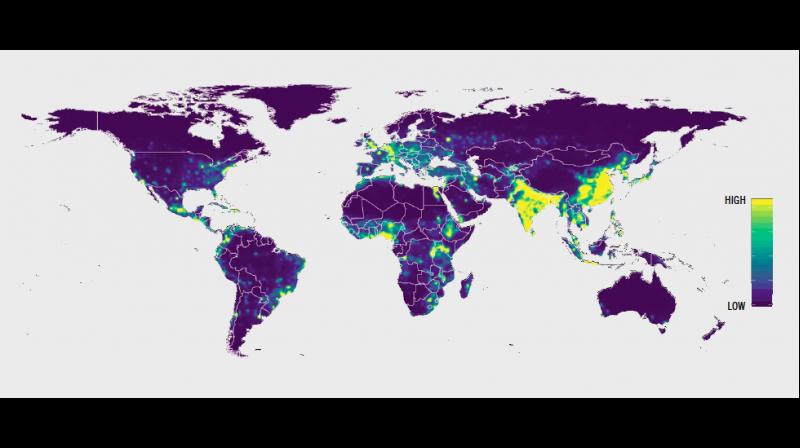Report: India might turn zoonotic disease hotspot

HYDERABAD: India and China could well emerge as the biggest hotspots for new zoonotic viral diseases — those that spread from wildlife to other mammals —and very likely to humans over the next few decades if human pressure on forests continues to increase, driving increasing human wildlife interactions, the State of the World’s Forests 2022 report has said.
The report comes just days after a similar prediction was made in a research paper published in the journal ‘Nature’ which too said climate change-driven changes could see over the next 50 years more than 15,000 new cases of mammals transmitting viruses to other mammals.
The study says that at least 10,000 virus species have the capacity to infect humans. These, at present, according to the study ‘Climate change increases cross-species viral transmission risk’, are circulating silently in wild mammals.
The study warns that climate and land use change will produce new opportunities for viral sharing among previously geographically-isolated species of wildlife, which will result in zoonotic spillover, diseases spreading from animals to humans.
The study says this risk will be highest in areas of high human population density in Asia and Africa, and could see a rise of such viral disease transmission by 4,000 times.
Ever since the Covid-19 pandemic there has been a renewed concern over spread of zoonotic diseases, and this concern was reflected in the ‘State of the World’s Forests’ report. It said human health is closely connected to animal health, and the shared environment.
It has become apparent, the report said, that addressing the ecosystem-health dimension through responsible land-use planning and greater involvement of the forest and wildlife sectors and natural-resource managers is important. It called for continuous monitoring and surveillance, data-sharing and evidence-based decision-making to contain the threat.

